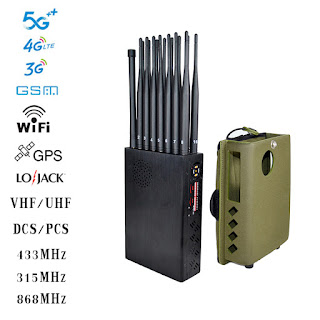The Disruption Caused by $50 Tin Box in Your Life
At this time, GPS satellite signals support your ability to reach out to your mother, energize your household, and ensure the successful landing of your aircraft; nevertheless, a budget-friendly plastic container can disrupt these essential operations.
Shortly after noon, San Diego, California, experienced a notable traffic disruption. Air traffic controllers at the airport tower noticed that the system used for tracking incoming aircraft was down. Simultaneously, the emergency pagers that alert medical staff at the Naval Medical Center also became inoperative. Additionally, the traffic management systems responsible for guiding ships failed, creating the potential for disorder at the busy port. On the streets, individuals attempted to use their cell phones, only to find no signal, and bank customers were unable to access cash from local ATMs. This problem persisted for an additional two hours.
The cause of the mysterious incident in January 2007 was determined after three days of investigation. At that time, two Navy ships were involved in training exercises at the Port of San Diego. Technicians, aiming to test the protocols for communication loss, jammed radio signals. This measure inadvertently disrupted the GPS satellite signals across a large section of the city.
The role of satellite signals has significantly broadened, extending well beyond the realm of your car's navigation system. GPS has emerged as an "invisible utility" that we frequently utilize without being fully aware of it. Cellular service providers depend on GPS time signals to facilitate communication between your phone and the network towers. Energy companies apply GPS technology to synchronize their grids when they are interconnected. Furthermore, financial institutions and stock exchanges utilize satellite data to generate timestamps, which are crucial for fraud prevention. Meanwhile, the reliance of society on GPS navigation continues to grow.
There is a growing apprehension among certain individuals regarding our reliance on technology that is vulnerable to failure, highlighting that significant disruptions can occur without the necessity of extreme military exercises. A significant concern revolves around GPS jammers—compact devices that can be affixed to a vehicle's dashboard. These devices are available for purchase online and are commonly used by individuals, such as truck drivers, who wish to obscure their locations from their employers. The increasing prevalence of these jammers has led to complications at airports and has caused cellphone signal failures in various metropolitan areas. When unobstructed, a jammer can interfere with GPS signals from several kilometers away. Thus, it is not surprising that researchers around the globe are working diligently to find solutions to prevent catastrophic GPS outages.
Stealth Utility
It is essential to recognize that when GPS systems fail, the consequences reach far beyond navigation. Donald Jewell, who has been instrumental in the development of GPS within the U.S. Air Force and is now the editor-in-chief of GPS World magazine, points out that our reliance on GPS is frequently unacknowledged. He estimates that there are over a billion GPS receivers in use today, with more than 90 percent depending on the signals primarily for their precise timing.
Cell phones are a primary application of this stealth capability. As users move, it is necessary for communication towers to align with one another to transfer calls, and GPS time signals present an affordable and precise means to accomplish this. The timing offset of each tower is also instrumental in its identification. In fact, many wireless communication technologies utilize GPS timing for synchronization purposes. This reliance likely led to the issues faced by traffic control and emergency pagers at the Port of San Diego in 2007.
Truck Cheating
Last intentionally designed a basic, commercially available jammers. While the use of such low-tech devices is illegal in the United States, the United Kingdom, and various other countries, they can be purchased online for as little as $30. Vendors claim that these devices are intended for privacy protection. Their ability to block devices that monitor a vehicle's movements has made them particularly popular among truck drivers who wish to avoid electronic surveillance in their cabs. Additionally, they can interfere with GPS-based toll systems that utilize onboard receivers. Some criminals employ these jammers to disable tracking devices in stolen cargo. "Initially, we thought the jammers might have been assembled in a bedroom by a young man with acne," states Last. "However, they are now being produced in factories in China."



Comments
Post a Comment